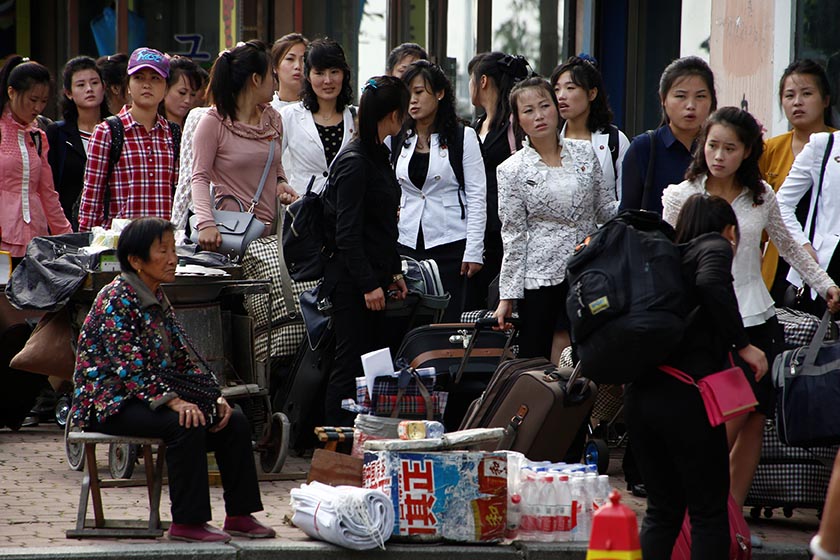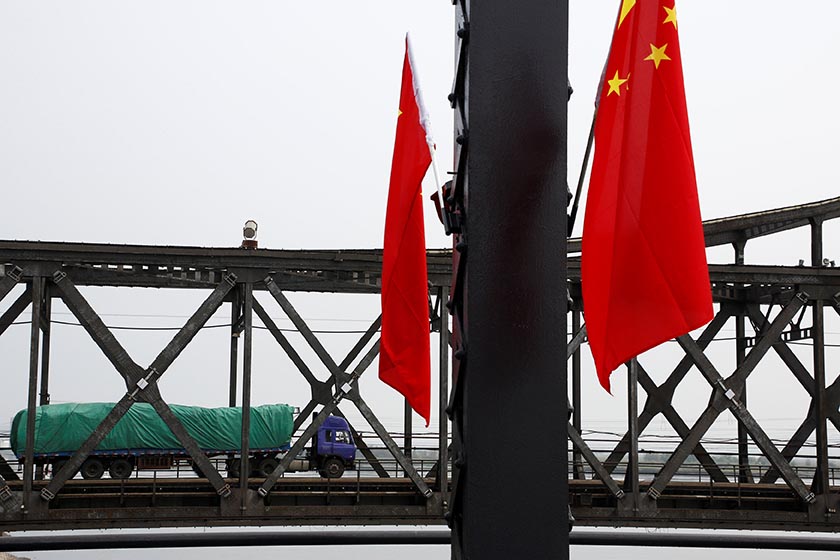From bricks to smuggled wigs: China's border trade with North Korea
- North Korea conducted fifth nuclear test on Friday
- Western nations want fresh sanctions, China, Russia less clear
- Existing sanctions target bomb programme, ban luxury goods
- Most China-North Korea trade through border city Dandong
- Crossing crowded with trucks as border re-opens after test

BANNED GOODS
Current UN sanctions target luxury goods and materials that could be used for North Korea's banned nuclear and ballistic missile programmes. They also aim to restrict the North's access to hard currency to fund those programmes.
Another driver, also surnamed Wang, said border checks appeared slower after the latest nuclear test.
"The checks really stepped up after the sanctions were introduced earlier this year," he said, referring to a further round of sanctions approved after North Korea's fourth nuclear test in January.
"Now they check when we load the trucks and they check again when we go through customs. They give me a list so I can see that they know everything I have on board. But trade in goods for ordinary people will continue indefinitely. How can it not? We don't want North Korean refugees flooding into China."
While South Korea and the United States are pushing for further sanctions after Friday's latest test, backed by Britain and France, the remaining veto powers on the UN Security Council, China and Russia, have been less clear.
Much of the economic development that has raised living standards for ordinary North Koreans in recent years is derived from cheap, Chinese imports sold in semi-legal private markets that have sprung up around the country.
Even Western nations are reluctant to impose sanctions that interfere with this day-to-day trade, say analysts, because they hope the emergence of a growing consumer class in North Korea will ultimately undermine leader Kim Jong-un's government.
Driver Liang Hengshun said he preferred not to linger in North Korea.
"They're a very closed society, we aren't allowed to use our phones, we can't listen to the radio, they'll take away anything that isn't written in Korean script like Chinese newspapers in our trucks," he said.
Smuggling was still quite common, he added, although much of it had more to do with turning a profit than beating sanctions.
"The tour buses smuggle in wigs, eyelash extensions, small things like that won't be caught," Liang said.
"If you want to buy a wig through formal channels it costs 1,000 yuan ($150) or so, but if you get one of these black market ones it'll only be 2-300 yuan and the driver is happy because he can make some money too," he said.
"We don't usually smuggle those kinds of things on our big trucks, we leave that for the tour buses."
($1 = 6.6789 Chinese yuan renminbi)






